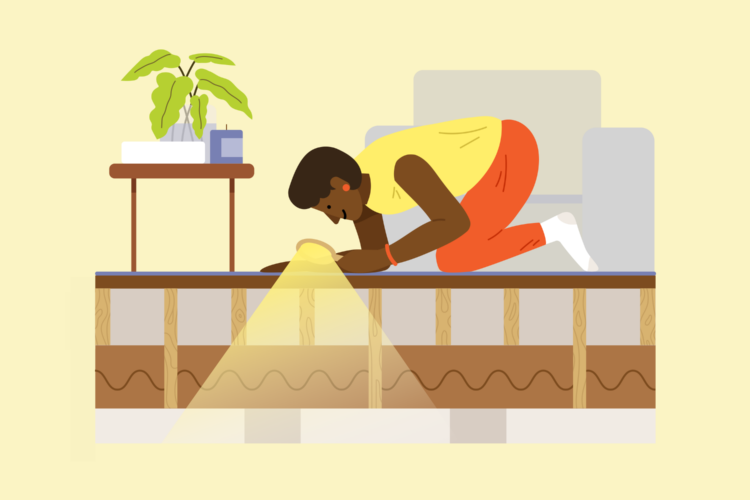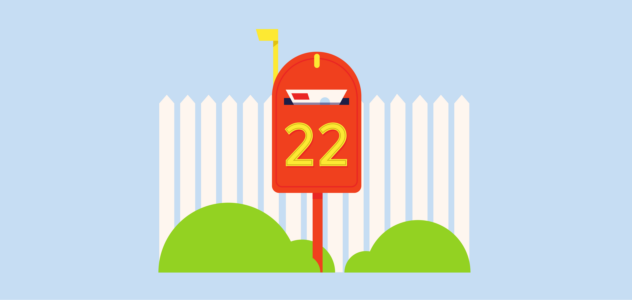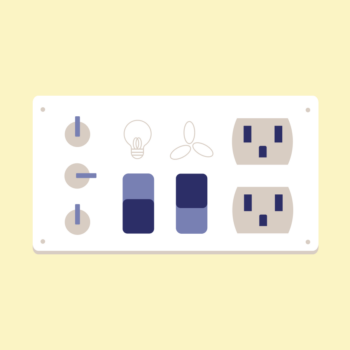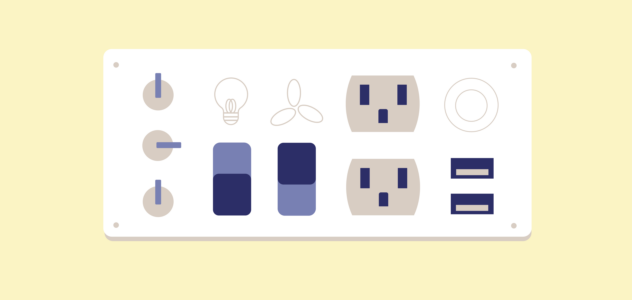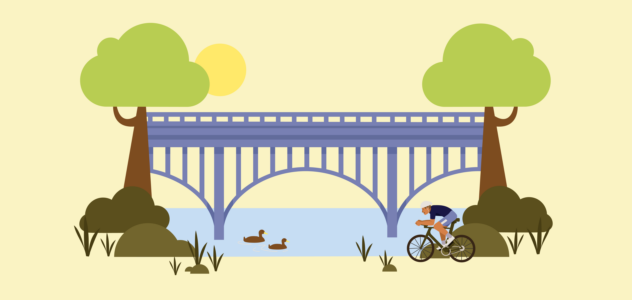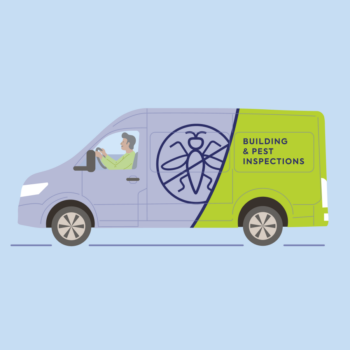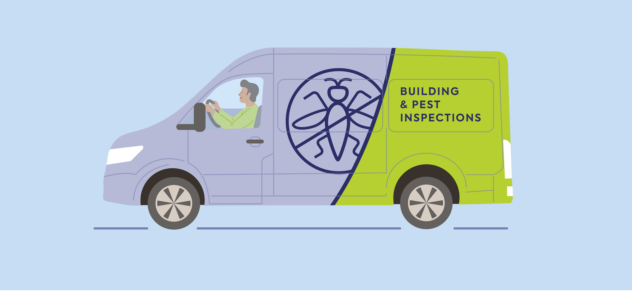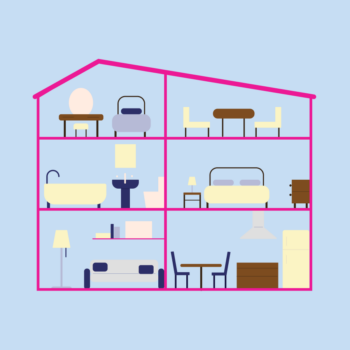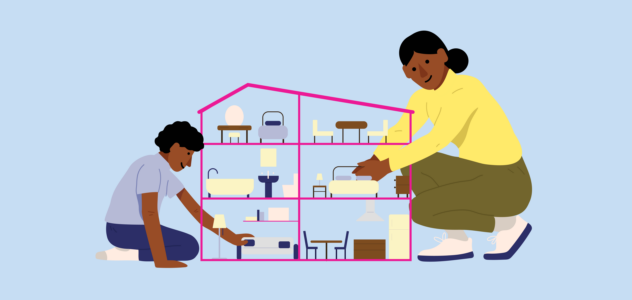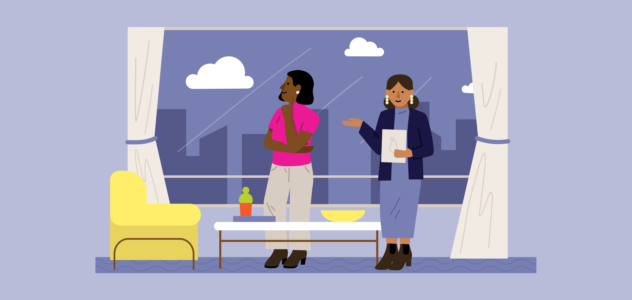When you’re on the hunt for a property, you might come across a place that’s love at first sight.
Maybe it’s the ideal location, the abundance of natural light, or you’re just getting all-round good vibes.
But before you jump ahead, make an offer and start planning your housewarming, there are a few key things to look for when buying a home.
Let’s walk through what to ask and what to look at when inspecting a house – from the physical components like the floor plan and water pressure, all the way to your lifestyle preferences like location and amenities.
Bonus: you’ll feel good when you ask lots of great questions.
But first, what should you consider BEFORE you inspect a house?
Sure, going to house inspections can be a fun Saturday activity (for the first few, anyway).
But if you’re on a mission to get the job done and secure a property (ASAP), there are things you can do to prepare before the weekend rolls around.
Check in with your priorities
Remember that no two property buying journeys look the same. You should always be guided by your values, priorities and non-negotiables (if you haven’t made a list of what you’re not willing to negotiate on, it could be a good idea to start there). There will always be pros and cons with any property, so knowing what you truly care about and what you’re not willing to budge on can really help narrow down your options.
Check out the property online
Speaking of narrowing down options – this is something you can do before you inspect a property. Look at the location, floor plan and features online. Then, if you’re not willing to negotiate on something (say, sharing a bathroom) it’ll save you time from going to an inspection that doesn’t fit this criteria.
Now you’ve checked in with yourself and narrowed down your options, it’s time to go to an inspection.
What to look for at an open house inspection
There’s a bit to consider when you’re inspecting a house – things like physical appearance, lifestyle preferences, as well as some common red flags.
Physical assessment
Look at obvious physical signs (and test whatever you can). Things like:
- Water pressure – check the taps in the kitchen, bathroom and laundry.
- Any signs of damage – is there water damage? Cracks in the walls? Mould?
- Open doors and windows – do they all work?
- Flick the light switches off – how’s the natural light?
- Assess the layout – does it work for YOU?
- Check the size of the bedrooms – will they be the right size for what you need?
- Pay attention to noise – is there a train line? Construction site? Surrounding neighbours?
- Check the storage – is there enough storage to fit all your stuff? If not, are you willing to declutter?
Finally, you’re not expected to be an expert at all the physical checks – this is just to get you started! When you’re getting more serious about a property, a building and pest inspection can help you take a closer look.
Lifestyle assessment
Remember those non-negotiables and values we spoke about earlier? When you inspect a property, you can also assess whether the house or apartment is suited to YOUR lifestyle.
- Car parking – what’s the situation? If you’ve got a monster four-wheel drive or you’re a two car family, is there enough space? Can visiting friends and family park easily, too?
- Nearby amenities – what’s important to you? How close is it to schools, playgrounds, cafes, walking paths or shops?
- Privacy – how much do you value your privacy? Sharing a building or dividing wall with others can be a pro or con depending on who you ask.
- Security – how safe and secure is the area? Are there added layers of security (like a gate or checkpoints in an apartment building)?
- Overall vibe – sometimes, you can just trust what your gut is saying. Do you get good vibes or bad juju?
- Property type – do you want a house with a backyard? Or do you prefer the perks of apartment living? Weigh up the pros and cons of buying an apartment.
Other things to consider
- Rental return – if you plan on renting it out as an investment property, how much money could you make? What’s the rental yield (AKA the difference between the income you receive from rent and the overall cost of your property)?
- Build quality – This can be hard to assess by eye if you’re not a builder by trade. But you can always call on a family member who knows their stuff or look into the developer. Are there articles or testimonials on them online?
- Off the plan vs existing build – With existing builds, there will be more certainty around your settlement date (AKA when you finally get to do a celebratory starfish on your front lawn, because, it’s yours). If you’re purchasing off the plan, settlement dates can often be changed or pushed out. The finished product can also look a little different to the renders. Don’t get us wrong, we’re not saying you shouldn’t buy off the plan, just make sure you’re prepared for it.
- By-laws (if it’s an apartment or townhouse) – these are laws imposed by the building’s body corporate. Check if these are aligned with your goals and lifestyle (they’re legally binding and could have rules around things like pets, smoking and noise).
- Additional fees – for example, apartments or townhouses may come with additional strata fees when compared with buying a house. They’re also known as body corporate fees (this is when all owners in a building are charged annual fees to cover the cost of maintenance and repairs of shared areas).
Obvious red flags
Some things just shouldn’t be ignored. Look for:
- Water damage – can you see peeling or flaking paint?
- Patchy DIY work – did the previous owner try to cut a few corners?
- Sagging floors or ceilings – this one’s pretty self-explanatory, red flag.
- Noticeable pest damage– are there any holes, bite marks or signs of infestation?
- Loud noises – because let’s face it, we all value sleep.
Once again, a building and pest inspection will do a more detailed inspection (this is just to get you started and to see whether it’s worth taking the next steps).
Also, when spotting damage and red flags, it may not always be a deal breaker. That’s because the property may be priced accordingly. In some cases, you may even choose to buy a property knowing it’s got a few issues that you can fix up (it always depends on the situation – a buyer’s advocate can help you weigh up your needs and find a suitable property).
6 questions to ask at an open house inspection (and why)
Who is currently (or has been) living in the house – is it owner-occupied or are there tenants?
If you’re buying a property that’s under lease, it might impact how soon you can move into it. On the flip side, if you’re buying an investment property this could be an advantage as it might save you having to look for tenants (at least until the lease expires).
Why is the current owner selling?
This will give you valuable information and a little insight into how urgently they want to sell. Are they selling for a lifestyle change? Or are they selling because there’s a big development about to take place next door? Big difference.
Have any modifications or renovations been made?
If you can’t already spot them, knowing about modifications and renovations can give you insights into what the property has been through (and whether there are some fixes you need to make down the track).
Are there any significant structural issues you’re aware of?
Once again, a building and pest inspection will likely pick this up. But it can be helpful to ask, too, as this can assist with your negotiation.
What sort of settlement are the vendors looking for?
Does this work with your timelines, too?
Can I have a copy of the section 32 or vendor statement?
This is a legal and mandatory document that tells potential buyers about the property title they’re interested in. It must disclose information a buyer should know before signing a contract, including things that may affect the state or value of the property. You’ll want a conveyancer to take a look at it if you’re getting serious.
Have you got your pre-approval sorted?
Now you know what to look for when inspecting a house, having your pre-approval sorted also means you can move quickly when you find a place that ticks all the right boxes (booyah!)
With a pre-approval, you can confidently make an offer on a property based on your potential loan size.
Better yet? Applying for pre-approval with Finspo is easy, free and totally non-intimidating.
- Book a chat with a friendly Finspo expert (online, phew!)
- Tell us about yourself and provide any extra info
- We’ll do the heavy lifting and present you with some loan options and a recommendation
